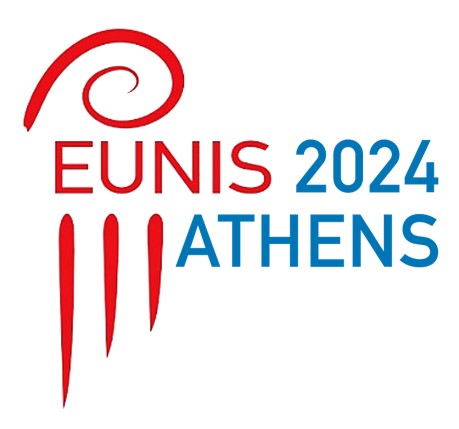This session consists of three presentations.
Featured Speakers
Jan Joost Norder, Dienst Uitvoering Onderwijs (DUO – Education Executive Agency), the Netherlands:
Preventing Diploma fraud? Digital diploma data is the answer! #29
In the last few years there has been an increase in the number of fraud cases with diploma’s, mainly in the health sector. Google for a certain degree and you get many hits from questionable websites that offer different diploma’s and certificates for a various range of subjects. For just 350euro you have your degree of choice and you could start working in your dream profession. In some cases a registration in a government register is part of the offer. How great is that?
According to the law it is mandatory for employers in healthcare professions to check the papers of their current and / or future employees. Employers have to possibility to check the paper or a digital version. For certain professions, even in health care, a registration in a license register is mandatory, what gives the employer an extra check if a employee is qualified. Unfortunately this is not the case for all professions in health care. In general not every organization asks for proof and how can you be sure that the documents are not tampered?
In 2010 the Dienst Uitvoering Onderwijs (DUO), the executive agency of the Ministry of Education, Science and Culture, got the assignment to build a national Diplomaregister. One of the main goals is to prevent fraud by giving the citizen a digital certified extract of their diploma. The documents are signed by the ministry and shows to potential employers (or grandmothers) that the documents are trustworthy.
Learn how we went from 200.000 downloads in 2012 to 2 million downloads in 2023, from almost empty workshop rooms to a helpdesk were employers can register their fraud cases. A best practice how to go from having digital data to the use of digital data. And how this is done by working together with different (governmental) organizations nationwide. Who says that crime doesn’t pay?
Download the presentation
Matija Kranjčina, University of Zagreb, Croatia :
Implementation of Digital Diplomas and Diploma Register in Republic of Croatia #38
Lately, there are several projects and initiatives to support the digitalization of higher education system in Croatia. All that was also enforced by the adoption of a new Law on Higher Education and Scientific Activity and related bylaws at the end of 2022 and during 2023. This law and related bylaws prescribed issuance of digital diplomas to students of all levels of higher education and the establishment of Diploma register. University of Zagreb, University Computing Centre (SRCE) as a central e-infrastructure institution that supports higher education institutions (later HEIs) in Republic of Croatia in all ICT segments, has been developing and maintaining an information system for HEIs since 2011 (ISVU, 2022) and is also building and information system for the HE register, since 2022 (Milanović & Kranjčina, 2023). To enable the issuance of digital diplomas, the information system for HEIs was enhanced and integrated with Diploma register at the end of the year 2023.
In this presentation we will show main characteristics of digital documents, diploma and diploma supplement, in Republic of Croatia, describe the process of generation of these documents, necessary enhancements of the existing national information system for HEIs and integration with the Diploma register as well as the main components of the recently built Diploma register.
Download the presentation
Geir Magne Vangen – Anne Kathrine Haugen, Sikt – Norwegian Agency for Shared Services in Education and Research:
National registries for life-long learning infrastructure in Norway #77
The Norwegian Government’s Skills Reform (2020) – Lifelong Learning aims to ensure continuous skill enhancement to prevent obsolescence in the workforce. A significant measure in the reform is the establishment of a digital competence platform to address the societal challenge of a widening skills gap. This paper discusses the development of the platform, the challenges in the current situation, the needs of the target group, and the incorporation of various registers to facilitate lifelong learning.
The platform aims to provide holistic and seamless user experiences, facilitate data accessibility, and promote closer interaction between the workforce and education providers. Despite a high level of education and a rich learning environment, rapid changes in the labor market necessitate continuous knowledge updating. However, a decreasing trend in training participation, especially among individuals with low formal education, presents a challenge.
This paper discusses some central components of a platform for lifelong learning, national registries, and certain services to enable such a platform: A National Education Registry, a Learner Registry and Result registries. These registers will provide comprehensive overviews of formal educational offerings, collect and verify digital credential data, an authoritative registry for individuals in education, and provide a
framework for retrieving and sharing academic results, respectively. The development and establishment of this competence platform for lifelong learning is a collaborative effort involving both public and private actors.
Download the presentation




